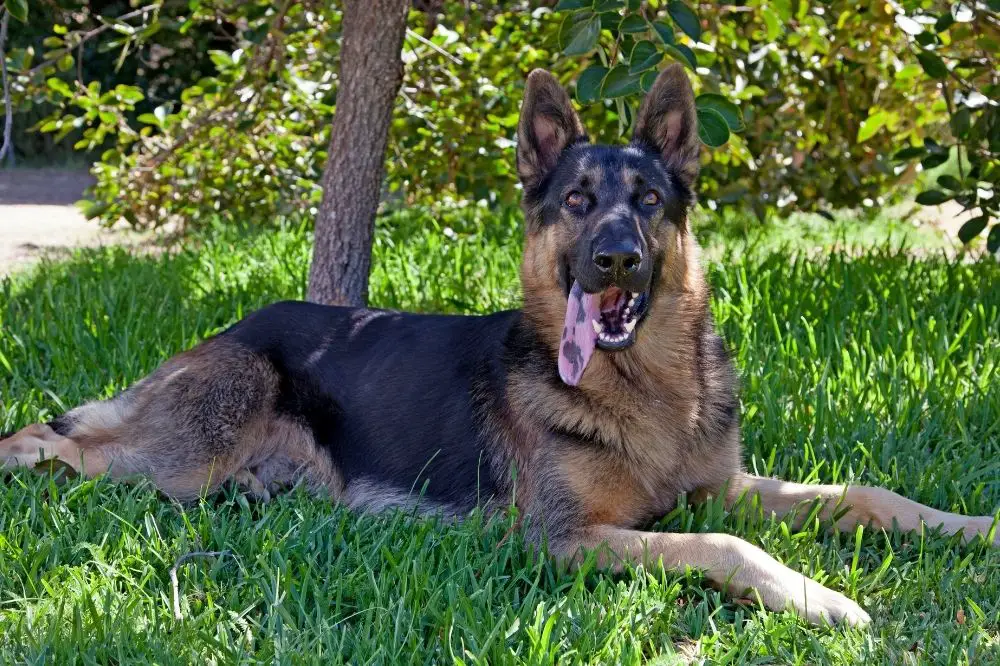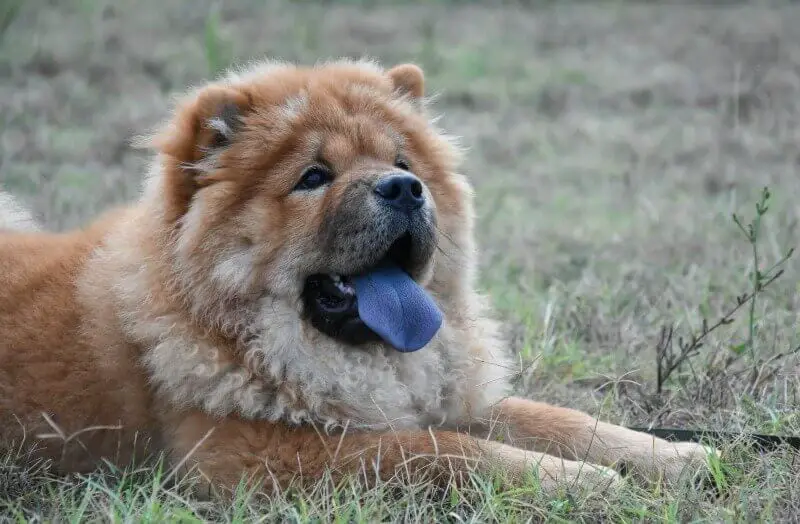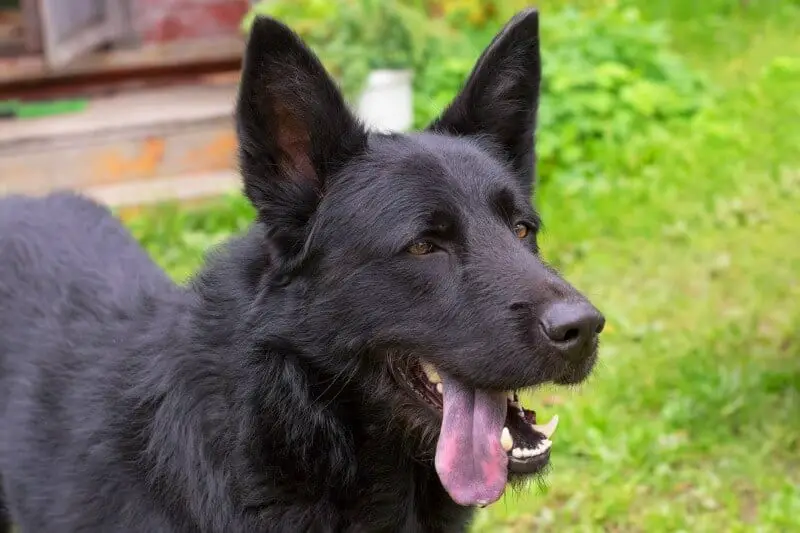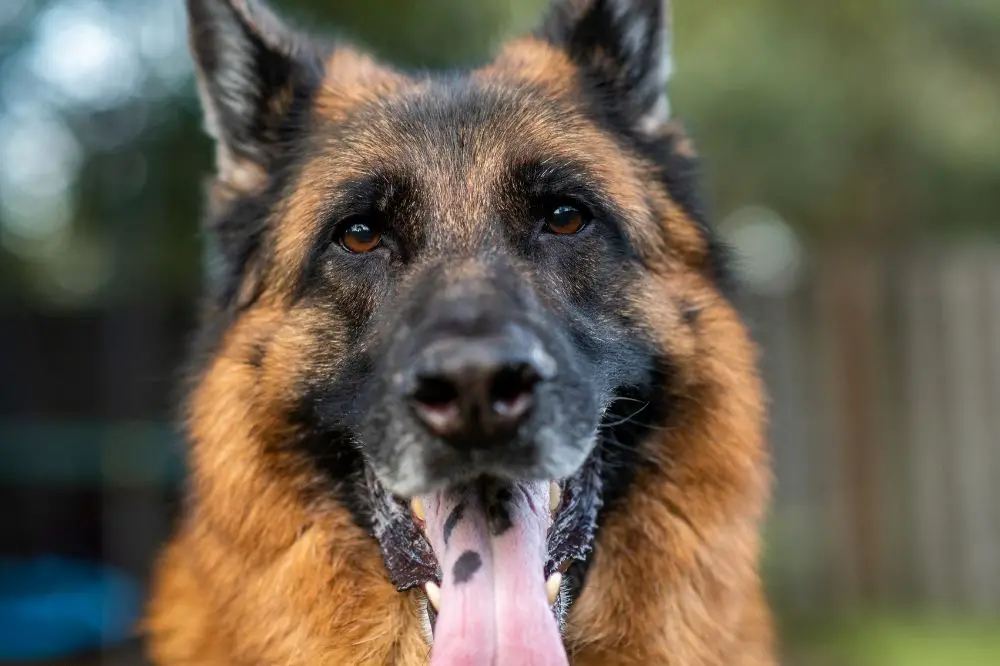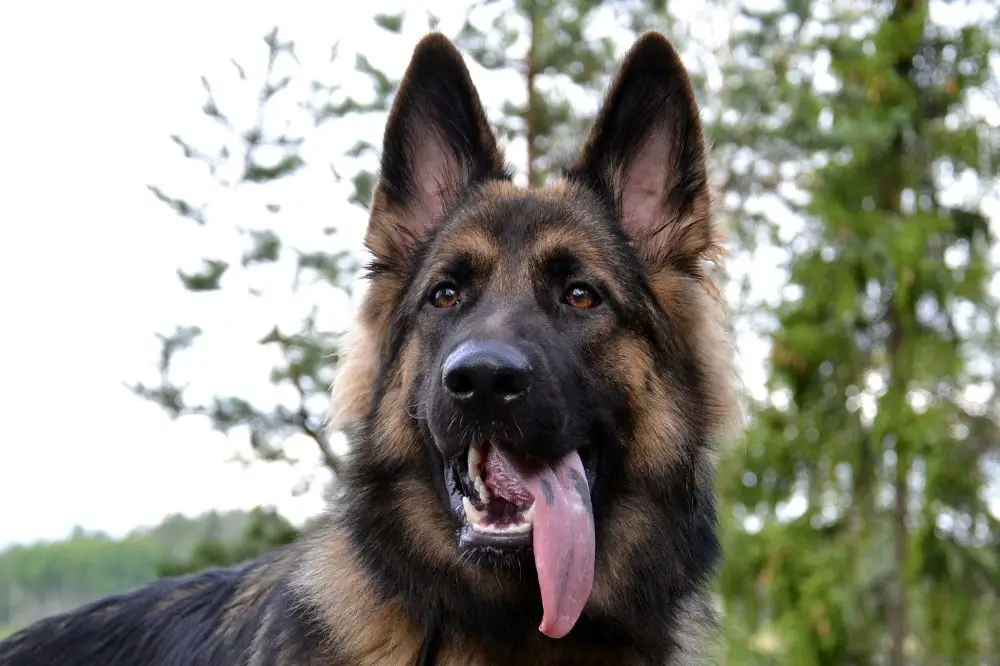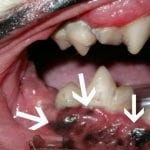If you have a German Shepherd with a black spot or multiple black spots on their tongue, there is no immediate cause for concern.
People may falsely tell you that your dog is part, Chow. While spotted tongues are a trait of the Chow, it is not unique to that particular breed.
Chow’s usually have a blueish black tongue.
The Chow and Shar-Pei may be breeds you immediately think of when you hear about dogs with spotted or dark tongues, but they aren’t the only breed of dog with that specific physical trait.
Let’s talk about some other breeds that do, too.
All told, over 30 breeds are known to have spotted tongues, including German Shepherds, Golden Retrievers, and Labs.
Why Do Dogs Have Black Spots on their Tongue?
Why exactly do some dogs have spotted tongues? It all comes down to extra pigmentation, which is similar to the freckles or birthmarks that you might find on your own body.
Dogs often have freckle-like spots due to extra pigmentation that is unique to them.
Dogs can develop spots as they age.
The change in pigmentation is not limited to just the tongue and may also be on other parts of the body, which go unnoticed due to your dog’s coat.
If your spotted tongued pure breed dog was to undergo a DNA test, it is not likely that the results will come back as part, Chow.
That said, since the Chow is one of the oldest breeds out there, you may find that your mixed breed dog with a spotted tongue might have some traces of Chow.
It’s worth repeating, though, that there are over 30 other breeds with this physical trait.
Given that information, the chances of you quickly narrowing down the genetic make-up of your dog based on the fact that they have a spotted tongue is not going to be easy.
While you will be able to narrow it down to a certain extent, with over 30 different breeds all having spotted tongues, there are plenty of combinations that could have gone into creating your dog.
Breeds with Spotted Tongues
- Airedale
- Akita
- Australian Cattle Dog
- Australian Shepherd
- Belgian Malinois
- Belgian Sheepdog
- Belgian Tervuren
- Bichon Frise
- Black Russian Terrier
- Bouvier des Flandres
- Bull Mastiff
- Cairn Terrier
- Chinese Shar-Pei
- Chow
- Chuandong Hound
- Cocker Spaniel
- Collie
- Dalmatian
- Doberman Pinscher
- English Setter
- Flat-Coated Retriever
- German Shepherd
- Gordon Setter
- Great Pyrenees
- Irish Setter
- Keeshond
- Kerry Blue Terrier
- Labrador Retriever
- Laizhou Hong
- Maltese
- Mastiff
- Mountain Cur
- Newfoundland
- Pomeranian
- Pug
- Rhodesian Ridgeback
- Rottweiler
- Shar-Pei
- Shiba Inu
- Shiloh Shepherd
- Siberian Husky
- Tibetan Mastiff
Black Spots and Genetics
When it comes to the spots on your dog’s tongue, it’s all about genetics.
The Spitz family is home to many breeds, while others are related to the Spaniel or Pointer. Many of these dog’s origins are the United Kingdom and Germany.
While these breeds have definite similarities, no-one has yet been able to figure out exactly why some dogs have spotted tongues, and others do not.
When to Worry About Spots on Your Dog’s Tongue
The pigmentation spots on your dog are similar to birthmarks on your skin. That said, if spots suddenly start to show up on your dog and seem suspicious, it’s never a bad idea to pay a visit to your favorite vet.
What may appear to be pigmentation spots could be canine melanoma or squamous cell carcinoma.
Both of these illnesses appear as pigmented fleshy masses inside the mouth.
If you are concerned or uncertain about spots or pigmentation, have them checked out ASAP.
One of the most effective ways to keep dogs free of oral cancers is to brush their teeth regularly and submit them to regular oral examinations.

